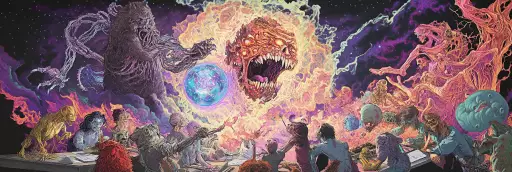Explore the Best AI Image Gallery

Beyond the Screen: How 5G is Unlocking Creative Frontiers
The relentless march of technological advancement continues to reshape our world, and the creative industry is no exception. While previous generations of mobile networks laid the groundwork for digital creativity, 5G technology promises to be a game-changer, ushering in an era of unprecedented connectivity, speed, and interactivity.
From augmented reality installations that blur the lines between physical and digital realms to immersive collaborative experiences that transcend geographical boundaries, 5G empowers creators to push the boundaries of imagination like never before.
A New Canvas for Creative Expression
The impact of 5G on the creative industry is multifaceted, touching upon various aspects of artistic production and consumption:
1. Augmented and Virtual Reality
5Gs ultra-low latency and high bandwidth capabilities are crucial for delivering seamless and immersive augmented reality (AR) and virtual reality (VR) experiences. Artists can now create interactive installations that respond to viewers in real time, or design VR environments that transport audiences to entirely new worlds.
2. Collaborative Creativity
5G facilitates real-time collaboration between creatives regardless of their location. Designers can work together on projects remotely, architects can visualize blueprints in a shared virtual space, and musicians can jam live across continents. This fosters a more inclusive and dynamic creative ecosystem.
3. Interactive Storytelling
5G enables the creation of interactive narratives that engage audiences on a deeper level. Imagine watching a film where your choices influence the plot, or exploring a virtual museum where exhibits come to life through 5G-powered sensors. The possibilities for immersive storytelling are truly limitless.
4. AI-Powered Creativity
5G enhances the potential of artificial intelligence (AI) in creative fields. AI algorithms can now process vast amounts of data to generate music, art, and even scripts, collaborating with human creators to push the boundaries of innovation.
Navigating the Ethical Landscape
As with any powerful technology, 5G raises ethical considerations that need careful attention:
1. Data Privacy
5Gs reliance on data collection necessitates robust privacy safeguards to protect user information. Clear guidelines and transparent practices are crucial to ensure responsible data handling.
2. Accessibility and Equity
Access to 5G technology should be equitable, ensuring that all individuals and communities can benefit from its creative potential. Bridging the digital divide is essential for fostering inclusive innovation.
3. Algorithmic Bias
AI-powered tools used in creative fields must be carefully monitored for bias, as algorithms can perpetuate existing societal inequalities. Ensuring fairness and representation in AI development is paramount.
Future Trends: A Glimpse into the 5G Creative Landscape
The future of 5G in the creative industry is brimming with exciting possibilities:
1. Hyper-Personalized Experiences
Imagine attending a concert where the music adjusts to your individual preferences, or experiencing a play tailored to your emotional responses. 5G will enable hyper-personalized creative experiences that cater to each audience members unique tastes.
2. The Metaverse as a Creative Hub
The metaverse, a persistent virtual world interconnected with physical reality, will become a thriving hub for creative collaboration and expression. Artists can build virtual galleries, designers can showcase their creations in immersive environments, and musicians can perform to global audiences.
3. 5G-Powered Art Installations
Cities will transform into living canvases for 5G-powered art installations that interact with the environment and respond to viewer input. Imagine interactive sculptures that change color based on the surrounding temperature or murals that come alive through augmented reality overlays.
5G is poised to revolutionize the creative industry, empowering artists, designers, and innovators to push the boundaries of imagination and explore new frontiers of expression. As we embrace this transformative technology, its essential to navigate its ethical implications responsibly and ensure that its benefits are shared equitably by all.








